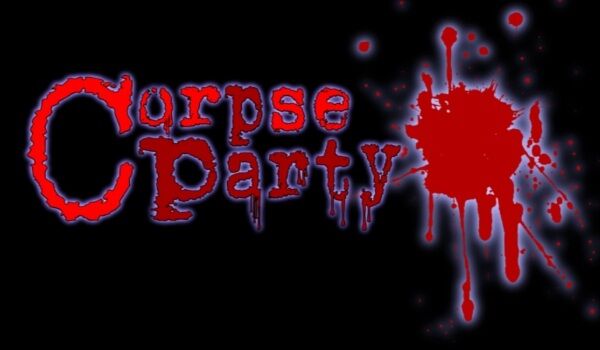Overview
Hyperinflation in Gaia Online began in August 2013 after the release of items known as “gold generators” several months after Gary Schofield became CEO of Gaia Interactive, the company that runs Gaia.
Background
Gaia Online is an anime-themed social networking, gaming and discussion forum site. Members of the site’s community are known as Gaians and each is represented on the site by an avatar that can be customized with different skin tones, facial characteristics, hair style, gender, race and clothing. Through their avatars, members can interact with each others in Gaia Towns, Rally, and other Flash spaces, some of which have been created for paid sponsors. The site contains a variety of different subforums, including boards for general discussion, news, lifestyle, role-playing, entertainment, games and art.
Users receive “Gaia Gold” that can be used to purchase items on the site by posting and replying on the message boards, browsing the site and playing games. “Gaia Cash” is a virtual currency introduced in 2007 that can be purchased for $0.01 each. Users can buy items with both gold and cash at virtual shops on the site and can trade among each other in a virtual marketplace.
Prior state of Gaia Online’s virtual economy
For much of the time, Gaia Online’s virtual economy remained stable due to the efforts of previous managements. Craig Sherman, Gaia Interactive’s CEO from 2007-10, said that “Up to 99 percent of the experience online is free at Gaia.” At the 2007 Virtual Goods Summit, he continues to emphasize that everyone starts out fair.
In August 2007, due to growing concerns over inflation in the virtual economy, Gaia hired economists Michael Boskin and Saar Golde, (later known to Gaia as Sagger-AT3), to help on managing the economy (which, at that time, Boskin has judged as healthy). Golde introduced a 2% tax on all marketplace transactions and stopped inflation from going out of control twice during his tenure. David Jesse, Gaia’s former Vice President on Product Management & Business Analytics revealed in the 2009 Virtual Goods Summit some of the methods they used to manage inflation, which included arguments against the sale of Gaia Gold. Mike Sego, the succeeding CEO, was also concerned about inflation, as he was among the speakers at the 2010 Engage Expo on the topic of managing virtual economies and avoiding currency devaluation.
Gaia Online’s economic stability encouraged users to save up gold for the items they want. Gaia user M o l d y Lunchboxx (better known nowadays as Boxxy), for example, quested to have an Emo Bag (one of the site’s monthly collectible items), which was worth 350,000 Gaia Gold in January 2008. And in her first video, she said that she considers herself poor for never having 100,000. Over the years, the price of said item fluctuated widely, but at manageable levels.
Early gold generators
Gaia Online had sold gold generators (items that gives its purchasers randomly-generated amounts of gold) several years earlier, beginning in April 29, 2008 with the gold generator named “Bag of Win”. Gaia staff member Panagrammic admitted in a journal entry that selling the Bag of Win indefinitely would hurt the economy, and Sagger-AT3 revealed that he initially disliked the Bag of Win but approved the sale of said item as an experiment. Two more gold generators were released in 2008: “Bag of Win 2” (July 30) and “Gold Gold Revolution Wheel” (December 24). For the next four years, Gaia didn’t sell additional gold generators.
Schofield’s early days in Gaia
In March 2013, Gaia Online appointed Gary Schofield as its new CEO. One of the first things Schofield did is to terminate several staff members, among them Panagrammic, who closely worked with Sagger-AT3 on maintaining the virtual economy. On June 18, Gaia’s staff confirmed that they’re working on an 18+ sister site. And days later, Gaia Online began the Summer Sale, where the Angelic Halo, the site’s first collectible item, was sold at the equivalent price of $999 despite statements against sale of past collectibles several years ago.
By July, anonymously-written reviews of Gaia Interactive from Glassdoors.com were posted in the forums for the first time, and the users became aware of the discontent among Gaia’s current and former employees. And in August 15, Josh “L0cke” Gainsbrugh, one of the site’s founders, announced his departure through his journal, citing that “Gaia has a new direction” and that he “will not be included in that adventure”.
Highlights
First release of Flynn’s Booty
In August 22, 2013, Gaia released a gold generator named “Flynn’s Booty”. In the accompanying FAQ, the staff said that “it is not predicted to have any long-term negative effect on the economy”. By September 16, Flynn’s Booty was offered to those who would buy at least $5 worth of Gaia Cash. By September 26, Flynn’s Booty returned in the cash shop. Thirty minutes after the announcement, users started gathering evidence to prove that Flynn’s Booty is the biggest source of inflation in the site.
In September 19, Jason Loia, the COO of Gaia Interactive, made a presentation about gamification for Manos Accelerator, a mentorship program for Latino entrepreneurs. One of the slides displays Flynn’s Booty as an example, while another elaborates on the application of Skinner’s Box to games. By October 6, pictures of Loia’s presentation began circulating within Gaia’s forums, and users were angered over being compared to lab rats and began seeing the management as the ones responsible for the hyperinflation. Rosann “Ling” Yip, another founder, announced her resignation shortly, leaving Derek “Lanzer” Liu as the last remaining founder.
Users were already demanding the discontinuation of Flynn’s Booty and the termination of both Schofield and Loia, and the discovery of Loia’s presentation fueled the users’ efforts even further. The staff responded through discontinuing the weekly “Ask the Admins” threads where users can submit questions for the staff to answer; removing from public view the profile of Flynn, the non-playing character associated with Flynn’s Booty; deleting threads and posts that mentioned the names of Schofield and Loia; and banning those who insist on posting those names. To circumvent censorship, users began giving Schofield nicknames like “Goldemort” and “he-who-must-not-be-named”.
As a result, some users have left Gaia and went to other avatar-based forum sites where they shared their grievances over the site’s operation, while others resorted to vandalizing Gary Schofield’s Crunchbase entry.
Subsequent gold generators and unannounced rules update
Despite the mass uproar and departures over the continued sale of Flynn’s Booty, the staff said in a statement released on November that “there are a large number of users who do like these items”. By December, Gaia’s Terms of Service was updated without prior notice. In comparison to the previous version, the newly-amended version contained provisions against disparaging, ridiculing, and scorning Gaia employees and officers [Sec. 4a] and posting personal information (such as names) of Gaia employees [Sec. 4q]. In addition, an amendment was added to allow Gaia to shut down the site without any warning [Sec. 3]. At the same time, gold generators began receiving other names like “Divinity’s Reach” and “Santa’s Super Sack”. Succeeding gold generators were released with different names and increasing amounts of gold payouts.
Months after constantly-releasing gold generating items, some users were alerted that they were approaching the gold limit of 2,147,483,647 gold and that they were increasing the limit to 9,223,372,036,854,775,807 gold. Shortly, new gold generators, starting with “Make It Pour”, started offering amounts beyond the previous limit. In the 2014 FanimeCon, the staff said that they consider the marketplace as healthy due to increased activity.
Book mention
On May 9, 2014, the MIT Press published a book by Vili Lehdonvirta and Edward Castronova entitled “Virtual Economies: Design and Analysis”, where the virtual economy of Gaia Online is specifically cited as an example of hyperinflation:
…New users in the online community Gaia Online were complaining that they didn’t have enough virtual currency to afford the items traded on Gaia’s user-to-user marketplace. The publisher heard the complaints and responded by giving the users more currency. But all this meant was there was now even more currency competing for the same number of items, driving goods prices even higher. New users were left almost as disappointed as before.
External References
































































